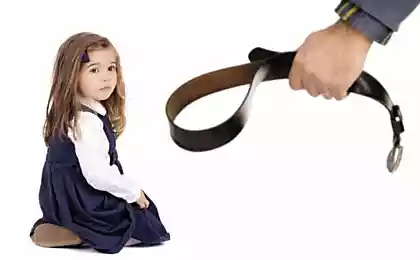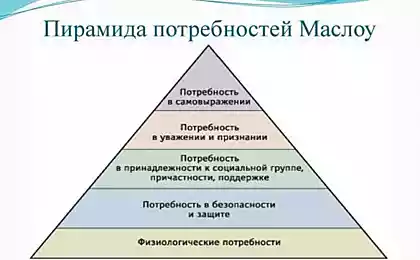495
The specificity of the method of CARROT and stick
From the author: the Feature of our model of education is the focus on the "stick", obviously based on folk wisdom, "effective use of the whip, saves cookies." Is it really so?THE SPECIFICITY OF THE METHOD OF CARROT AND STICK IN RUSSIA THAT WE HAVE THE CARROT DRIED OUT AND THEY ALSO BEAT. (joke)
The education of children perceived by parents as the main and only task, after the "to feed/clothe".
When at the consultation they talk about their difficulties with children, often say the same thing, in different words: "a million times all negotiated – negotiation, I him(her) and scolded and punished, the school also measures already taken, and "everything as it was, and went"! Why? How else is his(her) mother?!"

Before reading further, answer the following questions:
The third question usually evokes a reaction of misunderstanding and anger: "Yes! It turns out that criticize more than compliment. What do you want for truancy at school or for the rudeness of his(her) praise?"
It turns out that one of those crumbs of time that dealing with a child, a large part is spent on instruction, teaching, guidance and abuse/punishment, and when the time comes to love the child? When did he "deserve" the right to approve and support?
It turns out that the right to praise and support the initiatives of the child must also be able!
The formal "you – well done" insincere "Yes beautiful" and generalizing "you're the best" will not increase the self-esteem of your child, do not give the feeling of love and support, will not bring joy into a child's soul.
So how to praise and Express their approval?
First you need to remember that not everything needs words. Sometimes your smile, a touch or a surprised breath will tell the child more than all the words in the world.
Second, if you want to Express your feelings in words, it is not necessary to praise the child. Describe and Express admiration for what he has done "what a beautiful pattern; what is the procedure in the room." Tell me what you feel about that "I am pleased to be in a clean room."
Third, name the quality that showed a child in its activities, "that's orderly, admire." If you want to teach children to be neat, caring, responsible, household, you need the examples to show them how these qualities are manifested in my life.
Of course to compliment the "rules" you need to make an effort and pay attention to the child and his needs. You have to genuinely try and find in his work, something good, and then consider how this "good" to tell the child. At first, this praise is difficult, but like any skill it can be learned. It takes time and desire.

Warning!
Praise should sincerely and only for actually made. Children easily recognize a lie, and it reduces your credibility.
If all "bad", find at least something sensible and pay attention child this: "look, this plate clean, its so nice to hold in hands, it is cleanliness".
Match their enthusiasm with the age of the child: "Wow, you put on my own socks!", even three year olds can cause confusion.
To summarize all the above: Look for opportunities to praise your child, with the objective to criticize his external world will cope without you. published
Author: Irina Nechaeva
P. S. And remember, only by changing their consumption — together we change the world! ©
Join us in Facebook , Vkontakte, Odnoklassniki
Source: b17.ru/article/rugat_nelzya_nakazivat/
The education of children perceived by parents as the main and only task, after the "to feed/clothe".
When at the consultation they talk about their difficulties with children, often say the same thing, in different words: "a million times all negotiated – negotiation, I him(her) and scolded and punished, the school also measures already taken, and "everything as it was, and went"! Why? How else is his(her) mother?!"

Before reading further, answer the following questions:
- That was the last time you berated/scolded/shamed your child? How long has it been?
- When and for what you praised, approved, and was proud of his child?
- Which of these two forms of communication with a child in your family is used more often?
The third question usually evokes a reaction of misunderstanding and anger: "Yes! It turns out that criticize more than compliment. What do you want for truancy at school or for the rudeness of his(her) praise?"
It turns out that one of those crumbs of time that dealing with a child, a large part is spent on instruction, teaching, guidance and abuse/punishment, and when the time comes to love the child? When did he "deserve" the right to approve and support?
It turns out that the right to praise and support the initiatives of the child must also be able!
The formal "you – well done" insincere "Yes beautiful" and generalizing "you're the best" will not increase the self-esteem of your child, do not give the feeling of love and support, will not bring joy into a child's soul.
So how to praise and Express their approval?
First you need to remember that not everything needs words. Sometimes your smile, a touch or a surprised breath will tell the child more than all the words in the world.
Second, if you want to Express your feelings in words, it is not necessary to praise the child. Describe and Express admiration for what he has done "what a beautiful pattern; what is the procedure in the room." Tell me what you feel about that "I am pleased to be in a clean room."
Third, name the quality that showed a child in its activities, "that's orderly, admire." If you want to teach children to be neat, caring, responsible, household, you need the examples to show them how these qualities are manifested in my life.
Of course to compliment the "rules" you need to make an effort and pay attention to the child and his needs. You have to genuinely try and find in his work, something good, and then consider how this "good" to tell the child. At first, this praise is difficult, but like any skill it can be learned. It takes time and desire.

Warning!
Praise should sincerely and only for actually made. Children easily recognize a lie, and it reduces your credibility.
If all "bad", find at least something sensible and pay attention child this: "look, this plate clean, its so nice to hold in hands, it is cleanliness".
Match their enthusiasm with the age of the child: "Wow, you put on my own socks!", even three year olds can cause confusion.
To summarize all the above: Look for opportunities to praise your child, with the objective to criticize his external world will cope without you. published
Author: Irina Nechaeva
P. S. And remember, only by changing their consumption — together we change the world! ©
Join us in Facebook , Vkontakte, Odnoklassniki
Source: b17.ru/article/rugat_nelzya_nakazivat/
Anthony of Sourozh — the Person is more important than the rules
Magical anti-wrinkle cream will smooth the worst skin in just a week!























